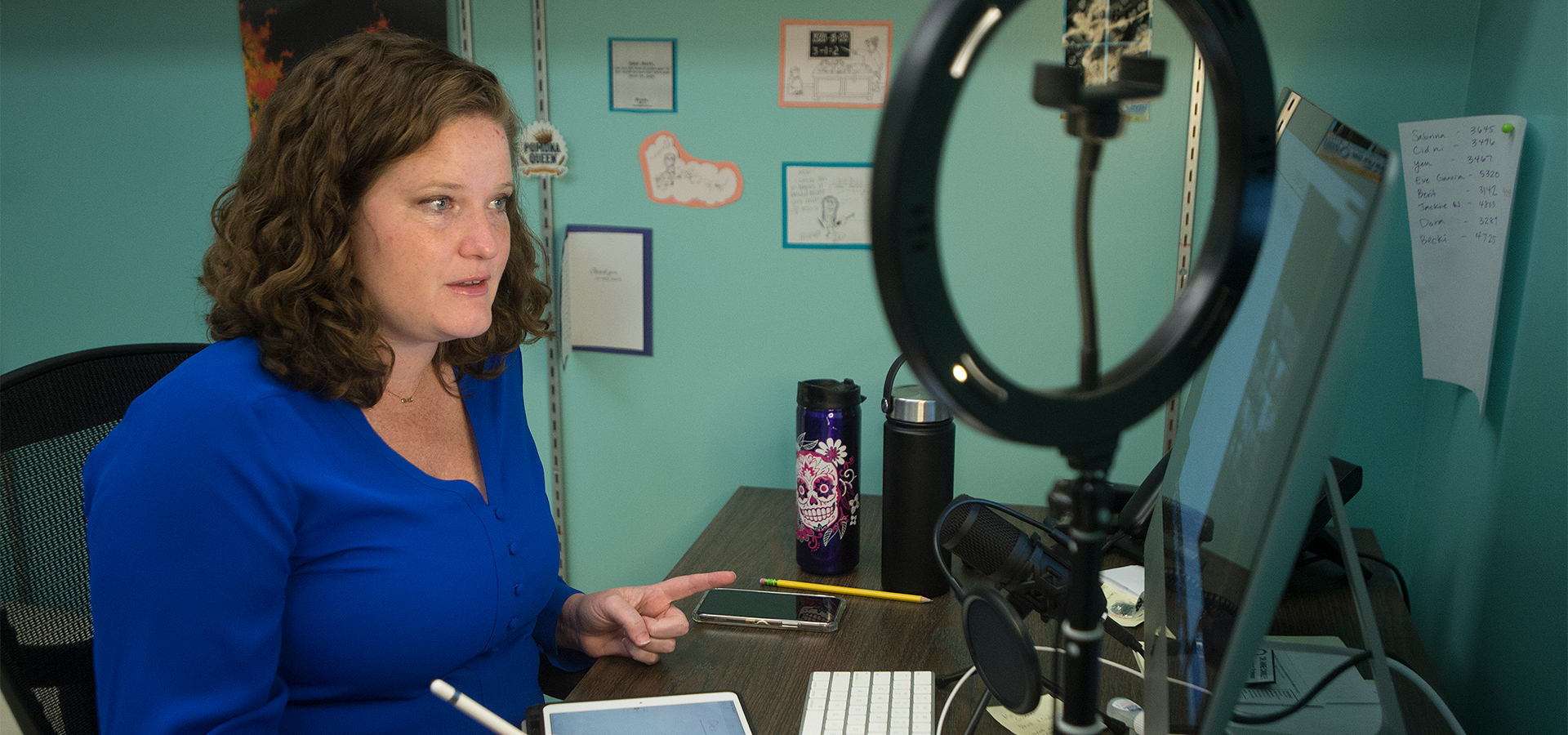Solving for Equity
Math Professor Works to Ensure All Students Make the Grade
By Melanie Johnson
Even as a young girl navigating the hallways of her Los Angeles elementary school, Anne Cawley knew inequities when she saw them.
She saw how the mostly Black and Latino students were treated differently by teachers — receiving less positive attention and steered into classrooms that offered less rigorous coursework.
In middle school, they wanted Cawley in a classroom with white students like her, while most of the Black and Latino children were placed in lower level classes.
“For me, race was an obvious factor,” says Cawley, an assistant professor in the math department at Cal Poly Pomona. “It was something that was obvious and present in the neighborhood I lived in and the school I went to.”
She didn’t become an advocate for equity in education in that moment, but these and other similar disparities she witnessed related to gender and sexuality left a lasting impression.
Cawley, who earned a bachelor’s and master’s degree in mathematics from Cal State Long Beach and a doctorate in math education from the University of Michigan, has been an advocate for equity in higher education since 2008. Her arrival at Cal Poly Pomona in 2018 came at a time when the California State University system mandated that all 23 campuses eliminate developmental math and English courses and develop an Early Start program. In response, Cal Poly Pomona offered incoming freshman needing additional help with math or English the option to take the first part of a general education math or English composition course in the summer or participate in Bronco Scholars, a five-week residential summer program.
It’s a change Cawley supported, as Black and Latino students are more likely to be put in remedial classes, which affects their outlook and confidence. Through a grant-funded program, she provides professional development to Bronco Scholars mathematics faculty.
Dora Lee, director of academic support and learning services, oversees Early Start/Bronco Scholars, among other equity programs. Lee credits Cawley’s background in math education with her ability to show other faculty members how to relate and connect to students as people.
“She talks to them about equity, the importance of a growth mindset and equity-minded pedagogy,” Lee says.
“Her experiences really help her to rethink how math is taught in the classroom and give her the willingness to work with faculty in her discipline. That’s why the program is so successful.”
Cawley conducts research focused on equity issues and is heavily involved in a group of university
and community college faculty members called MESCal (Mathematics Equity in Southern California). The goal is to look for better ways to engage students in postsecondary mathematics courses and to instill in them math confidence, she says.
“Systemic racism exists in education and as faculty we have a direct avenue to challenge that and create change,” she says. “The change starts with us.”
